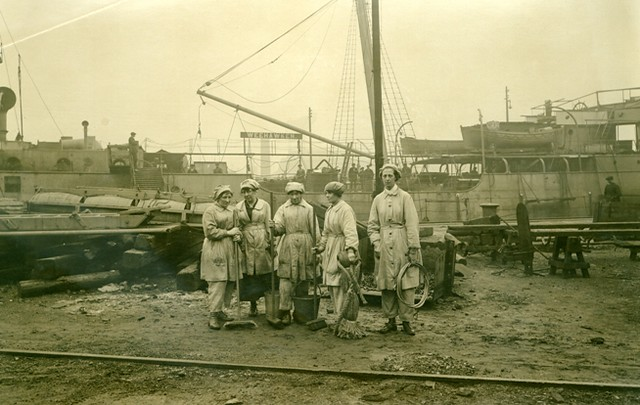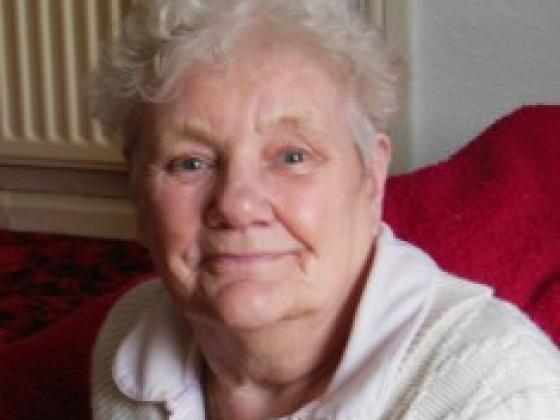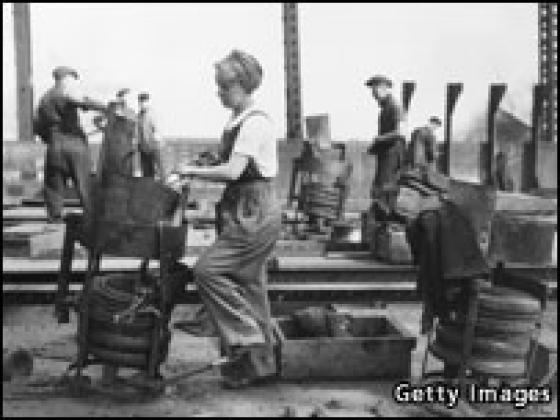The image of shipbuilding as a male-dominated industry is accurate, to a point. However, women were an important part of North East shipbuilding communities, and their invisible work behind the scenes has often been overlooked.
Traditional women’s jobs involved cleaning and polishing at the yards. Women also provided the catering for launch events.
During the Second World War a shortage of labour meant women were recruited into traditional male roles for the first time. They provided general labour and were also trained into more skilled roles such as welders or plumbers.
When the war ended, women were expected to step back into the old ways. Some were happy to do so, but the ideas about what it was possible for women to do had changed.
(Picture: The Wallsend Slipway and Engineering Company Limited, which constructed the Mauretania's turbines, with female workers in the yard. Courtesy Tyne & Wear Archives & Museums)

Audrey Nichols, tack welder at Swan Hunter (Wallsend) during WW2
(External link)
Oral history recording with Audrey Nichols, where she describes her wartime experience working as a tack welder at Swan Hunter.

Joan Boon of Blyth, Cleaner and Tack Welder
(External link)
Although it was always a male-dominated industry, some female employees found careers in the port. Joan Boon, originally employed at the port as a cleaner, became a female tack welder in the 1960s. She earned £24 a week, which “was not bad in those days”.

Christine Burtis, blacksmith’s labourer at Austin & Pickersgill (Southwick) during WW2
(External link)
Oral history recording with Christine Burtis, where she describes her wartime experience working as a blacksmith's labourer for Austin & Pickersgill.

Elsie Hammond, welder at Austin & Pickersgill (Southwick) during WW2
(External link)
Oral history recording with Elsie Hammond, where she describes her wartime experience working as a welder at Austin & Pickersgill.

Florrie Gatenby, plumber at Palmer’s Shipbuilding Company (Jarrow) during WW2
(External link)
Oral history recording with Florrie Gatenby, where she describes her wartime experience working as a plumber at Palmer's Shipbuilding Company.

Nellie Crisp, worker at Doxford's (Sunderland) during WW2
(External link)
Oral history recording with Nellie Crisp, where she describes her wartime experience working as a labourer for Doxford’s shipyard in Sunderland.

Women on the Wear
(External link)
Feature article by Angela Stevenson about the role women have played in Sunderland's shipbuilding history. Stevenson also reflects on her own family's shipbuilding heritage.